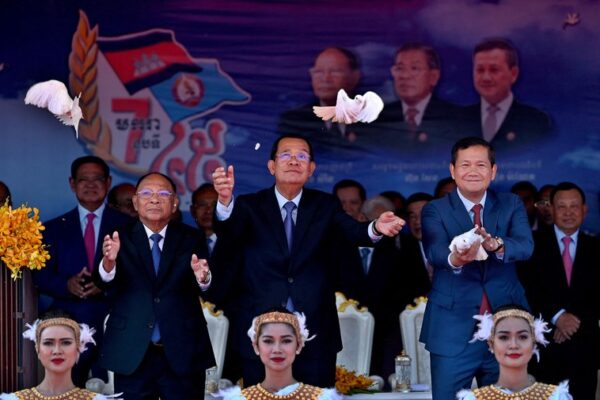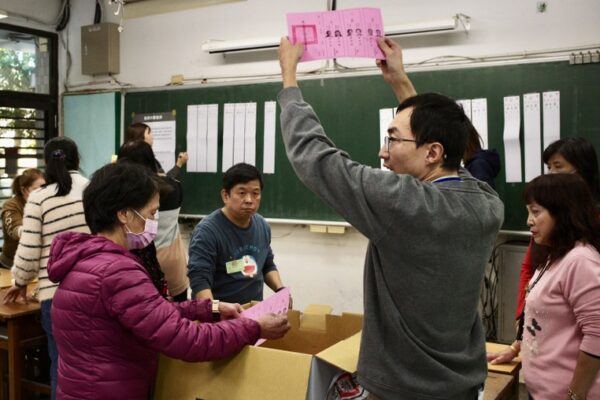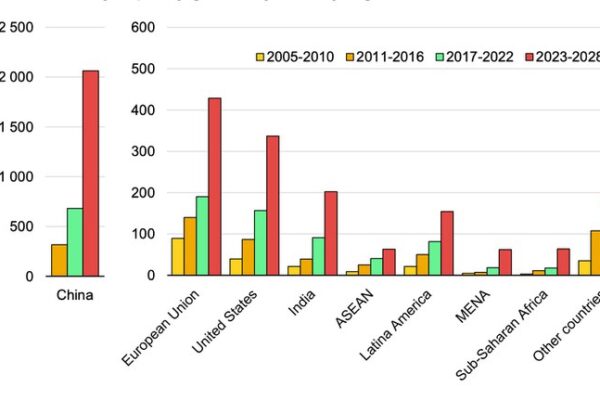
Cambodians need consumer rights NGOs in an era of scams and scandals
Long gone is the heyday of Cambodia’s civil society, which a decade ago was the most vibrant and rumbustious in Southeast Asia. The authoritarian Cambodian People’s Party (CPP), in power since 1979 and now firmly in control of a one-party state, saw it as a threat and has systematically crushed the public sphere since 2013. Some NGOs still exist and are performing brave work, but they have been greatly defanged and are petrified of lawsuits or dissolution by the ruling party. Despite decades of tens of millions of dollars being pumped into Cambodia’s NGO sector, mainly from foreign governments, there has never been an association created that specifically represents the interests of consumers. There is apparently an NGO registered as the Cambodian Consumer Association, but it has no website and good luck trying to find out anything about its activity. Leader of Cambodian People’s Party Hun Sen and his son Prime Minister Hun Manet release pigeons during a ceremony to mark the 45th anniversary of the fall of the Khmer Rouge regime in Phnom Penh on Jan. 7, 2024. (Tang Chhin Sothy/AFP) Consumers International, a global organization for consumer groups, has no affiliate in Cambodia, according to its website. “Without consumer protection associations,” a report on Cambodia stated, “there will be an imbalance of bargaining power between consumers, and producers and sellers of products and services. As a result, consumers’ rights are not fully protected.” Indeed, on the one hand, consumption is increasing and habits are changing. Household final consumption expenditure rose to $18.1 billion in 2021, up from around $10 billion in 2011 and just $3.3 billion in 2001, according to World Bank figures. Cambodia’s e-commerce sector, difficult to regulate, is expected to surge in value to $1.78 billion in 2025, more than double what it was worth in 2020. ‘Scam-state’ Yet, there remain major concerns about the quality of products being sold, especially by traders on Facebook, and other consumer protection issues. Certainly not helping the situation, Cambodia has gotten a damaging reputation as a country of scammers—a “scam-state”, if you like. More and more Cambodians are also becoming consumers of government services, including the expanding healthcare sector, and contributors to the state through growing taxation collection. On the other hand, business groups, foreign corporations and the country’s powerful tycoons, many of whom have married into the political aristocracy, are increasingly calling the shots. A Cambodian protest against a controversial law regulating non-governmental organizations in Phnom Penh, July 24, 2015. (Tang Chhin Sothy/AFP) Hun Manet, who took over as prime minister from his long-serving father in August, has pitched himself as a friend to the capitalist class. His young government spent months preparing for its first Government-Private Sector Forum in November, at which Hun Manet stressed: “Today’s forum is also a testament to the close cooperation and culture of dialogue between the government and the private sector to jointly address the problems and concerns of investors in order to promote private sector development in Cambodia”. The claim made by the CPP throughout the decades is that economic freedom is more important than political freedom. Yet rather unequal freedom when one side (the businesses and producers) has vast institutional power and the ear of the premier, yet there are no comparable groups defending the interests of consumers. Cambodia only adopted a Law on Consumer Protection in November 2019, and the commerce ministry created a National Programme on Consumer Protection last year. A lengthy report published in late 2021 by the Konrad-Adenauer-Stiftung, titled Law in the Digital Age: Protection of Consumer Rights, noted that the “actual implementation of [the Law on Consumer Protection] in promoting and protecting consumer rights is questionable.” Southeast Asian examples Chapter Seven of this report, titled “Legal and Practical Considerations for Establishing a Consumer Association in Cambodia,” is an interesting read on this topic. The report recommended that “civil society and nongovernmental institutions need to play an outstanding role as check and balance agents in overseeing consumer rights promotion and protection in both traditional and electronic commerce. Civil society and NGOs shall urge, support, and join the establishment of consumer associations in different sectors to ensure that consumer rights to safety, rights to information, rights to choose, rights to be heard of concerns, and rights to redress are guaranteed.” Cambodian security officers detain protesters in prisoner uniforms as they demonstrate against a controversial law regulating non-governmental organizations outside the National Assembly building in Phnom Penh, July 26, 2015. (Tang Chhin Sothy/AFP) There are good examples across Southeast Asia. One is the Consumers Association of Singapore, a non-profit, non-governmental organization. It runs comparison websites that provide consumers with information on prices charged by companies for everyday necessities and energy. It operates an Accredited Businesses List so that consumers can check if companies are reputable. Importantly, consumers can also submit complaints on its websites which are then investigated. Elsewhere in Southeast Asia, there is also the Federation of Malaysian Consumers Associations, the Myanmar Consumers’ Union, a Foundation for Consumers in Thailand and a Coalition for Consumer Protection and Welfare in the Philippines. An overarching “Consumers Association of Cambodia” would be a welcome addition to the public sphere and, with the right funding, including from foreign donors, could engage in the same roles as the Singaporean counterpart. Yet, more targeted associations would also be needed. Using public money One area could be in tax. In 2013, domestic tax revenue was just $900 million, or around $60 per capita. By 2022, it had spiked to $3.45 billion, or $206 per capita. As such, most Cambodians have become taxpayers as well as consumers of government services in recent years. The National Social Security Fund, a national healthcare insurance, has expanded rapidly in recent years and Hun Manet vows to expand it further. State expenditure has increased from $409 million (13 percent of GDP) in 2013 to $7.9 billion (27 percent of GDP) in 2022. Yet there remains no “Taxpayers Alliance of Cambodia”. Such an association would lobby the government to…






